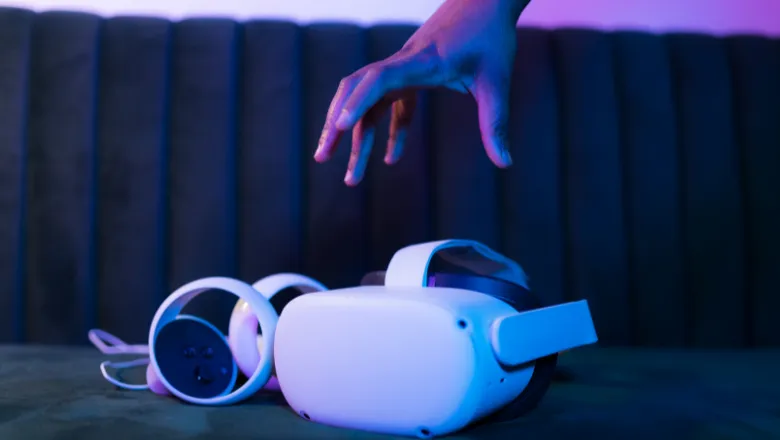28 April 2023
King's researchers show leadership in virtual reality for global cancer surgery
King’s researchers argue that virtual reality (VR) technology could be a critical tool for enhancing cancer surgical training around the world, but more work needs to be done around country specific implementation.

A new systematic review including Dr Peng Yun Ng, Professor Richard Sullivan, and Dr Ajay Aggarwal from King’s Global Oncology Group and Institute of Cancer Policy argue that virtual reality (VR) technology could be a critical tool for cancer surgery, but many types of this technology have not been approriately validated in real world settings.
It’s estimated that over 80% of people diagnosed with cancer require surgery for treatment. However, less than 5% of people in low-income countries (LMICs) have access to safe, affordable, and timely surgery due to a lack of trained healthcare workforce.
One tool that’s been proposed to tackle this bottleneck is the use of virtual reality (VR) surgical simulation. While the technology has been consistently advocated as a viable tool to train surgeons since its inception, little is understood about how different types of VR technology are being adopted into surgical oncology training.
To fill this gap of our scientific knowledge, a major systematic review was undertaken by an international research group led by Institute of Cancer Policy at King’s College London. Only 24 articles in the last ten years were found that looked at VR technology across a range of surgical specialties and cancer pathways. The authors considered this a low number when considering the breadth of VR technologies.
The analysis, published in the journal eCancer, highlighted significant gaps in the application of VR with most research focused on high-income country settings with a paucity of studies looking at VR application in LMICs.
Additionally, the authors found a noteworthy lack of standardisation for evaluating the clinical validity of VR technology when applied to cancer surgery. This included processes within VR-related clinical trials and subsequent measures to integrate VR within routine healthcare procedure, known as implementation science.
More broadly the analysis revealed that although VR could accurately simulate surgical procedures including procedural sequencing, only two thirds of current published research demonstrated that VR could effectively measure surgical performance. A glaring gap in most studies was the failure to look at predictive validity. In other words, whether VR could predict the future performance of the surgeon being trained.
The authors argue that, collectively, these findings show that wider and better Virtual Reality Surgical Simulation research studies, especially implementation science programs are needed, particularly in LMIC settings. To meet the demands and requirements of enhancing cancer surgical training with VR, the authors call for research to focus on making VR affordable and sustainable, particularly for low resource settings.
Read the full publication in eCancer.
* *
In the past, King's has also been involved in a project to develop a low-cost surgical simulation using VR technology with Southern Methodist University and UNC School of Medicine. Learn more about this project by watching the video below.


